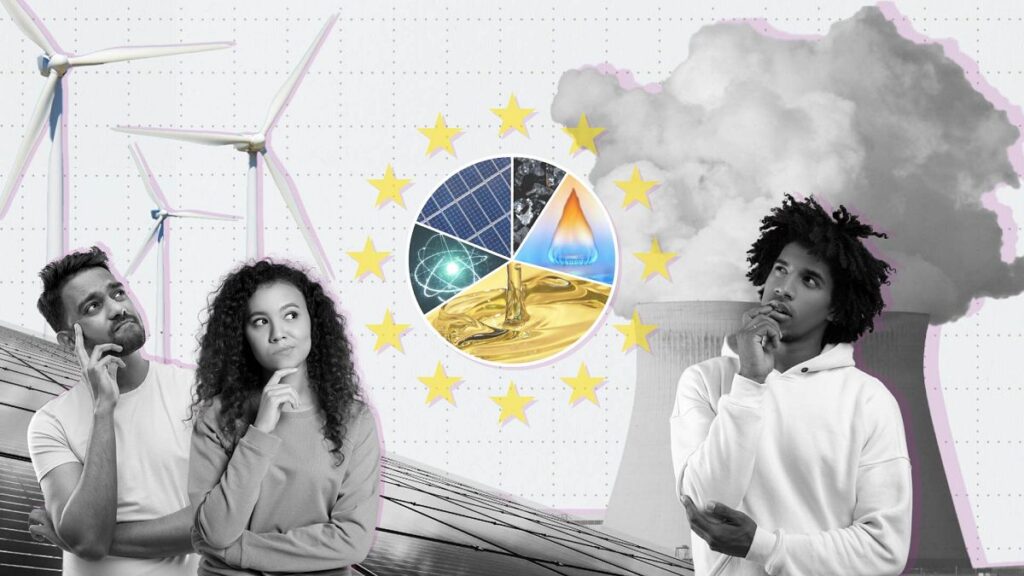& Maud Zaba
Published on
Total energy in the EU, what Eurostat calls gross available energy, fell by 4.1 % in 2023, the equivalent of about 380 million barrels of oil, marking a record low.
Long-running efficiency policies have reduced waste across all sectors, while milder winters have decreased heating demand. The spike in fossil fuel prices caused by Russia’s full-scale invasion of Ukraine has prompted additional conservation efforts.
Put simply, Europe is managing to do more with less.
The EU is still heavily reliant on fossil fuels (67%), but renewables now supply 19.5% of all energy in the EU, up 31% since 2013 and just one percentage point shy of natural gas.
Nordic countries, such as Sweden, Finland, and Denmark, lead the green transition, with renewables accounting for 40–50% of their energy mix.
Poland and the Czech Republic remain coal-reliant, with solid fuels still supplying roughly a third of their demand.
Energy imports and consumption trends
The EU only produces about 40% of the energy it consumes.
Domestic primary production is down nearly 20% since 2013. Almost all of its oil (95%) and gas (90%) must be shipped or piped in.
This leaves EU energy dependency at 58.4%, down from the 2022 record, but still higher than the average of the 2010s.
Norway (not an EU member), the United States, Algeria, Qatar and a reduced flow from Russia remain the primary sources of oil and gas.
Examining the breakdown of energy consumption, transportation is the largest consumer, accounting for 32% of demand.
Households follow with 26.3%, while industry absorbs 24.6%. Services and agriculture together use 9.1%, and the remaining 8% is directed to non-energy purposes such as feedstocks and lubricants.
Transport’s dominance has grown over the past three decades, primarily due to an increase in cars on the road and a thriving aviation industry.
Road-fuel demand rebounded between 2021 and 2023 but is still below its 2019 peak, and international aviation remains 8% shy of pre-COVID levels.
Read the full article here
